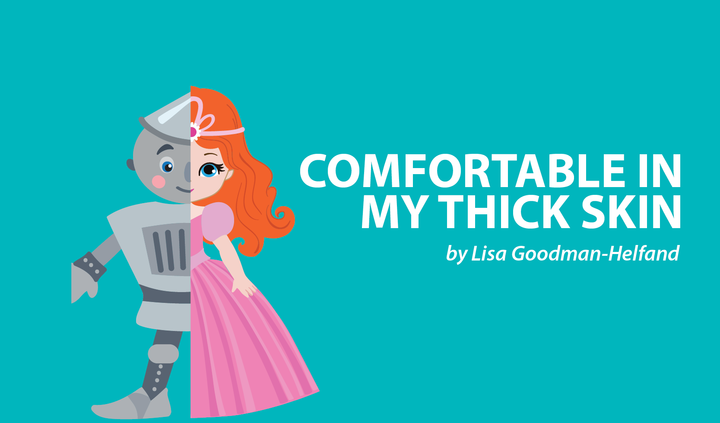Health Insurance: A Right or a Privilege?
Written by |


Healthcare coverage is a regularly featured story in the 24-hour news cycle. People’s opinions vary widely on the issue, as do politicians’ thoughts on the matter. Debates rage, tensions grow, and deeper divides are formed as our government wrestles with this colossal controversy. Nestled at the heart of it all, though, are some basic questions:
How much is a person’s life worth in this country?
In a life-or-death situation, what measures should be taken to save an uninsured person?
I’m alive today because the school district where I’ve now taught for 20 years provides the “Cadillac of insurance plans.” On April 26, 2006, I checked into the hospital for a scheduled C-section. Due to scleroderma, I was a high-risk patient, but based on the uneventful delivery of my son three years before, doctors anticipated I would go home with my newborn daughter in four days.
I spent 218 days in the hospital.
Due to catastrophic postpartum complications, I underwent eight major surgeries, spent more than 100 days in the ICU, and was emergency transferred to different facilities. I also had an additional six months of intensive physical, occupational, respiratory, and speech therapy after I was released from the hospital. As you might imagine, my tour of hospitals cost millions of dollars. I’m not even including the maintenance drugs and medical supplies I will require for the rest of my life due to a permanent ostomy bag, neuropathy, and a myriad of other health obstacles I acquired during that seven-month hospitalization.
Not only did I have superior healthcare insurance from my employer, but I also was covered under my husband’s policy. Having secondary insurance is a luxury few can afford. My husband was 32 years-old with a dying wife, a newborn, and a 3-year-old. He had the weight of the world on his shoulders, but never once had to worry about the avalanche of medical bills that flooded our mailbox daily.
Every CT scan, surgery, TPN bag, port, drainage equipment, IV tube, tracheotomy supply, intubation, and rehabilitation therapy was covered. When my family made the life-saving decision to have me transferred to a hospital better equipped to handle my complicated case, they didn’t worry that it wouldn’t get approved by insurance. In short, my family moved heaven and earth to save my life, and my health insurance paid for it all.
I was not just fortunate in having the “Golden Ticket” of health insurance. In addition to being doubly covered, both my sister and her husband are physicians. They knew how to navigate the caverns of the healthcare system, and advocated for me every single day. If a doctor didn’t want to order a test, but they thought I needed it, they fought tooth and nail to make it happen. My sister and brother-in-law weren’t just my unrelenting advocates, they also served as medical translators for the rest of us who lacked medical background.
With my traumatic crisis now 11 years in the rear view mirror, I marvel at my extreme good fortune during those dark months. What would have happened to me if I didn’t possess outstanding health insurance? How might my fate have been altered had I not had two doctors in my family? Would I have survived if I had been an uneducated individual who didn’t speak English? What if I hadn’t had a rich tapestry of support from friends and family who cared for my children, visited me around the clock, and literally and figuratively carried me through the most terrifying year of my life?
I can’t say with conclusive evidence that I would have died without all these factors playing in my favor, but I suspect that’s the case.
Is my life more important than someone who doesn’t have health insurance? Were my children more entitled to be raised by their mother because their aunt and uncle are doctors? Did my husband deserve to escape becoming a young widower because we had the resources to cover me under two insurance plans?
I don’t know the answers to the big healthcare questions plaguing our nation. I do however, believe with all my heart that the answer to my three questions above, should be a definitive “no.”
Check out Lisa’s memoir Does This Hospital Gown Come with Sequins?
Learn more about Lisa’s journey at Comfortable in My Thick Skin
***
Note: Scleroderma News is strictly a news and information website about the disease. It does not provide medical advice, diagnosis, or treatment. This content is not intended to be a substitute for professional medical advice, diagnosis, or treatment. Always seek the advice of your physician or other qualified health provider with any questions you may have regarding a medical condition. Never disregard professional medical advice or delay in seeking it because of something you have read on this website. The opinions expressed in this column are not those of Scleroderma News, or its parent company, Bionews Services, and are intended to spark discussion about issues pertaining to scleroderma.






Leave a comment
Fill in the required fields to post. Your email address will not be published.